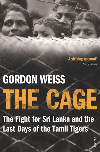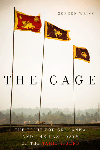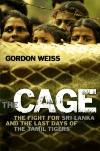
Gordon Karel Weiss

Bio brief
I served the UN, the OSCE, and compatible governments for almost three decades of work focused on multi-faceted peacekeeping, political, and humanitarian crises in some of the world’s most fragile and conflicted zones. I was boots-on-the-ground in Africa, India, Af/Pak and former Soviet Central Asia, the Western Balkans, Eastern Europe, the Caribbean, the Caucasus, South-East Asia, and the Middle East, including first response operations.
Since May 2023 I lead the the Planet Humana Fund, a new private philanthropic organisation based out of Providence, Rhode Island, and Sydney. Planet Humana provides grants to individuals and organisations doing high-impact and innovative frontline work across a range of human rights, development, humanitarian, and media projects throughout the globe. We currently work in Kenya, Argentina, and East Timor, with the bulk of our work in Ukraine.
I've been published in the New York Times, Foreign Policy, the Washington Post, The Australian, the Sydney Morning Herald, Salon, and various institutes, and have been interviewed by numerous Australian, U.S., European, and Asian news outlets, including the BBC, CNN, Sky News, and NPR. Formerly, I was a Visiting Scholar at the University of Sydney's Centre for Peace and Conflict Studies in the Department of Political Science, and an Adjunct Professor at Griffith University's Department of Government.
Personal
I'm the father of a beautiful daughter, and the son of an immigrant who became an early female judge in Australia, and a Czech refugee whose 57-member family was killed during the Holocaust. My primary home is Australia, to which the highland Scots part of my family immigrated in the 1820s as early pioneers in Tasmania and the Mildurra district on the Murray River.

Critical praise for my book -
The Cage: The Fight for Sri Lanka and the Last Days of the Tamil Tigers
THE WALL STREET JOURNAL – “This powerful book is a haunting reminder of the price countries in the developing world pay for the flawed choices of their founders.”
THE ECONOMIST – “An excellent account of how that victory was won, and of the price paid for peace.”
NOAM CHOMSKY – “This shattering… tale of savagery and suffering not only lifts the veil that conceals one of the most awful tragedies of the current era, but also helps us understand what should be done… before other such horrors spiral out of control.”
THE SPECTATOR (Best Summer Reading 2011) – “A parable of the World, the Flesh, and the Devil… the thin line that separates civilized societies from those that sink into collective madness governed by hatred.”
FOREIGN AFFAIRS (Book of the Day, April 2016) – “Weiss provides harrowing details, as well as insight.”
THE SUNDAY TIMES (Jon Swain) – “A striking account of the ruthless terror wreaked by both sides on the innocent civilians trapped in a pocket of land… [Weiss’s] book is a powerful indictment.”
THE INTERCEPT (Best Summer Reading List 2015) – “Gripping... Deeply informed, humane and compassionate… a beautifully articulated insight into the human experience.”
THE LOS ANGELES REVIEW OF BOOKS – “A potent analysis.”
THE SCOTSMAN – “Painstakingly researched and referenced study... he lines up his targets carefully, then picks them off with surgical precision.”
BBC (Nick Bryant) – “Some of the best coverage of Sri Lanka.”
THE GUARDIAN (the BBC's George Alagiah when asked what book he wished he'd written) – “The Cage by Gordon Weiss.”
THE AUSTRALIAN – “Essential reading… Its value lies in its dispassionate analysis of the cause of Sri Lanka’s tragic civil war and how such conflicts can be avoided.”
THE LITERARY REVIEW (Jason Bourke) – "One of the strengths of this book is that, unlike much of the reporting at the time of the crisis in 2009, it unpicks the roots of the problem."
THE ISLAND (Sri Lanka) – “A knockout blow. No wonder the government had it taken off the shelves; it does not want you to read it.”
JON LEE ANDERSON (New Yorker staff writer) – “A tightly-written and clear-eyed narrative about one of the most disturbing human dramas of recent years… a riveting cautionary tale about the consequences of unchecked political power in a country at war. A must-read.”
GARETH EVANS (fmr Australian Foreign Minister) – “A compellingly readable account of one of the very worst atrocity stories this century… Weiss is scrupulously even-handed… a timely prod to the world’s collective conscience.”
ROMA TEARNE (author) – “A fair and brilliantly written tour de force of this long forgotten war.”
GOODREADS – "Absolutely enthralling and brilliantly written..."
CHARLES PETRIE (Diplomat and author of the UN’s ‘Petrie Report’ inquiry) – “The first thing I was handed was a copy of ‘The Cage.’ Weiss’s… account should serve as a guidepost for decision-makers and scholars of international affairs everywhere. A book can change the world.”
ASIAN ETHNOLOGY - "Raises... the question of how witnesses should respond to alleged war crimes, human rights violations, and the breakdown of the rule of law. A sweeping discussion."
THE SYDNEY MORNING HERALD - "A courageous document that holds to account the brutality of a rogue state that is all too often seen as simply a beautiful tourist destination."
GROUNDVIEWS – "The Cage is a page-turner. Gordon’s prose is lucid and compelling. This is not a book you can easily put down once picked up. There are around 60 pages of notes and background reference material – Weiss has clearly done his homework."
© 2018




